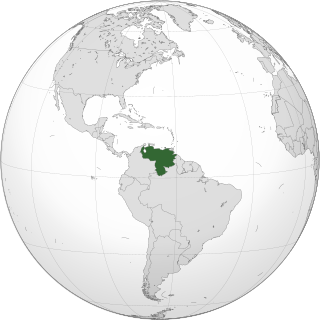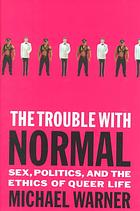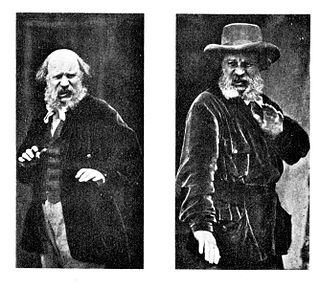Romer v. Evans, 517 U.S. 620 (1996), is a landmark United States Supreme Court case dealing with sexual orientation and state laws. It was the first Supreme Court case to address gay rights since Bowers v. Hardwick (1986), when the Court had held that laws criminalizing sodomy were constitutional.

Martha Craven Nussbaum is an American philosopher and the current Ernst Freund Distinguished Service Professor of Law and Ethics at the University of Chicago, where she is jointly appointed in the law school and the philosophy department. She has a particular interest in ancient Greek and Roman philosophy, political philosophy, existentialism, feminism, and ethics, including animal rights. She also holds associate appointments in classics, divinity, and political science, is a member of the Committee on Southern Asian Studies, and a board member of the Human Rights Program. She previously taught at Harvard and Brown.
This is a list of notable events in the history of LGBT rights that took place in the year 1998.

Lesbian, gay, bisexual, and transgender (LGBT) persons in Venezuela may face legal challenges not experienced by non-LGBT residents. Both male and female same-sex sexual activity is legal in Venezuela, but same-sex couples and households headed by same-sex couples are not eligible for the same legal protections available to opposite-sex married couples. Also, same-sex marriage and de facto unions are constitutionally banned since 1999.

Lesbian, gay, bisexual, and transgender (LGBT) persons in Romania may face legal challenges and discrimination not experienced by non-LGBT residents. Attitudes in Romania are generally conservative, with regard to the rights of gay, lesbian, bisexual, and transgender citizens. Nevertheless, the country has made significant changes in LGBT rights legislation since 2000. In the past two decades, it fully decriminalised homosexuality, introduced and enforced wide-ranging anti-discrimination laws, equalised the age of consent and introduced laws against homophobic hate crimes. Furthermore, LGBT communities have become more visible in recent years, as a result of events such as Bucharest's annual pride parade and Cluj-Napoca's Gay Film Nights festival. In 2006, Romania was named by Human Rights Watch as one of five countries in the world that had made "exemplary progress in combating rights abuses based on sexual orientation or gender identity." The 2016 Pew Research poll found that 85% of Romanians said homosexuality should not be accepted by society.
The wisdom of repugnance or "appeal to disgust", also known informally as the yuck factor, is the belief that an intuitive negative response to some thing, idea, or practice should be interpreted as evidence for the intrinsically harmful or evil character of that thing. Furthermore, it refers to the notion that wisdom may manifest itself in feelings of disgust towards anything which lacks goodness or wisdom, though the feelings or the reasoning of such 'wisdom' may not be immediately explicable through reason.

Lesbian, gay, bisexual, and transgender (LGBT) persons in Kenya face legal challenges not experienced by non-LGBT residents. Sodomy is a felony per Section 162 of the Kenyan Penal Code, punishable by 14 years' imprisonment, and any sexual practices between males are a felony under section 165 of the same statute, punishable by 5 years' imprisonment. While female same sex-sexual activity is not explicitly prohibited by law, lesbians, bisexual women and transgender persons, are not recognised in the Kenyan Constitution, and are discriminated against, covertly, as well as undergo corrective rape practices by heterosexual men. In addition, the country's gross indecency can be used against lesbian women who engage in same sex acts. On 24 May 2019, the High Court of Kenya refused an order to declare sections 162 and 165 unconstitutional. The state does not recognise any relationships between persons of the same sex; same-sex marriage is banned under the Kenyan Constitution since 2010. There are no explicit protections against discrimination on the basis of sexual orientation and gender identity. Adoption is prohibited to same-sex couples.
In United States constitutional law, a suspect classification is a class or group of persons meeting a series of criteria suggesting they are likely the subject of discrimination. These classes receive closer scrutiny by courts when an Equal Protection claim alleging unconstitutional discrimination is asserted against a law, regulation, or other government action, or sometimes private action. When a law or government action affects a group that falls under a "suspect classification," courts apply the strict scrutiny standard in reviewing the constitutional validity of a law or action.

Lesbian, gay, bisexual, and transgender (LGBT) people in Slovenia face challenges not experienced by non-LGBT residents, though the laws concerning LGBT citizens have evolved over time.

Lesbian, gay, bisexual, and transgender (LGBT) rights in Kazakhstan are limited. LGBT persons in Kazakhstan face legal and social challenges and discrimination not experienced by non-LGBT residents. Both male and female same-sex sexual activity are legal in Kazakhstan, but same-sex couples and households headed by same-sex couples are not eligible for the same legal protections available to opposite-sex married couples.

The Trouble with Normal: Sex, Politics, and the Ethics of Queer Life is a book by Michael Warner, in which the author discusses the role of same-sex marriage as a goal for gay rights activists. First published in 1999 by The Free Press, an imprint of Simon & Schuster, it was re-published in 2000 in paperback by Harvard University Press. Warner argues that the right to marry is an inadequate and ultimately undesirable goal for gay rights activism. As well as addressing marriage, he considers other areas in which public discourse stigmatizes certain sexual behaviors, including through sensationalist coverage of sex scandals, public zoning initiatives that marginalize the sex industry, and the attempted use of shame to manage sexually transmitted disease. The book has been described as a classic of the debates on normalcy as a goal for the gay rights movement, and as an important contribution to queer theory.

Disgust is an emotional response of rejection or revulsion to something potentially contagious or something considered offensive, distasteful, or unpleasant. In The Expression of the Emotions in Man and Animals, Charles Darwin wrote that disgust is a sensation that refers to something revolting. Disgust is experienced primarily in relation to the sense of taste, and secondarily to anything which causes a similar feeling by sense of smell, touch, or vision. Musically sensitive people may even be disgusted by the cacophony of inharmonious sounds. Research continually has proven a relationship between disgust and anxiety disorders such as arachnophobia, blood-injection-injury type phobias, and contamination fear related obsessive–compulsive disorder.
Sexual orientation change efforts (SOCE) are methods used in attempts to change the sexual orientation of homosexual and bisexual people to heterosexuality. They may include behavioral techniques, cognitive behavioral techniques, psychoanalytic techniques, medical approaches, religious and spiritual approaches, and, in some parts of the world, acts of sexual violence. According to the American Psychiatric Association Task Force on Appropriate Therapeutic Responses to Sexual Orientation, "there are no studies of adequate scientific rigor to conclude whether or not such methods work to change sexual orientation. The longstanding consensus of the behavioral and social sciences, and the health and mental health professions is that homosexuality and bisexuality are in themselves normal and positive variations of human sexual orientation." Research consistently failed to provide any empirical or scientific basis for regarding them as disorders or abnormalities.

Toward a Feminist Theory of the State is a 1989 book about feminist political theory by the legal scholar Catharine MacKinnon.
The right to sexuality incorporates the right to express one's sexuality and to be free from discrimination on the grounds of sexual orientation. In specific, it relates to the human rights of people of diverse sexual orientations, including lesbian, gay, bisexual and transgender (LGBT) people, and the protection of those rights, although it is equally applicable to heterosexuality. The right to sexuality and freedom from discrimination on the grounds of sexual orientation is based on the universality of human rights and the inalienable nature of rights belonging to every person by virtue of being human.

Sevcik v. Sandoval is the lead case that successfully challenged Nevada's denial of same-sex marriage as mandated by that state's constitution and statutory law. The plaintiffs' complaint was initially filed in the U.S. District Court for the District of Nevada on April 10, 2012, on behalf of several couples denied marriage licenses. These couples challenged the denial on the basis of the U.S. Constitution's Fourteenth Amendment guarantee of equal protection.

The Mismeasure of Desire: The Science, Theory, and Ethics of Sexual Orientation is a 1999 book by the philosopher Edward Stein, in which the author critically evaluates scientific research on sexual orientation, discusses "social constructionist" and "essentialist" views of the subject and related ethical issues, and responds to criticism of social constructionism. Part of the "Ideologies of Desire" series edited by the queer theorist David M. Halperin, the book was published by Oxford University Press.

Sex and Reason is a 1992 book about human sexuality by the economist Richard Posner, in which the author attempts to explain sexual behavior in economic terms and discusses a range of controversial subjects related to sex, proposing reforms in American laws.

Lesbian, gay, bisexual, and transgender (LGBT) persons in Anguilla face legal challenges not experienced by non-LGBT residents. Same-sex sexual activity is legal in Anguilla, but same-sex couples cannot marry or obtain civil partnerships. Anguillan law does not forbid discrimination based on sexual orientation or gender identity.
List of works by or about Martha Nussbaum, American philosopher.













